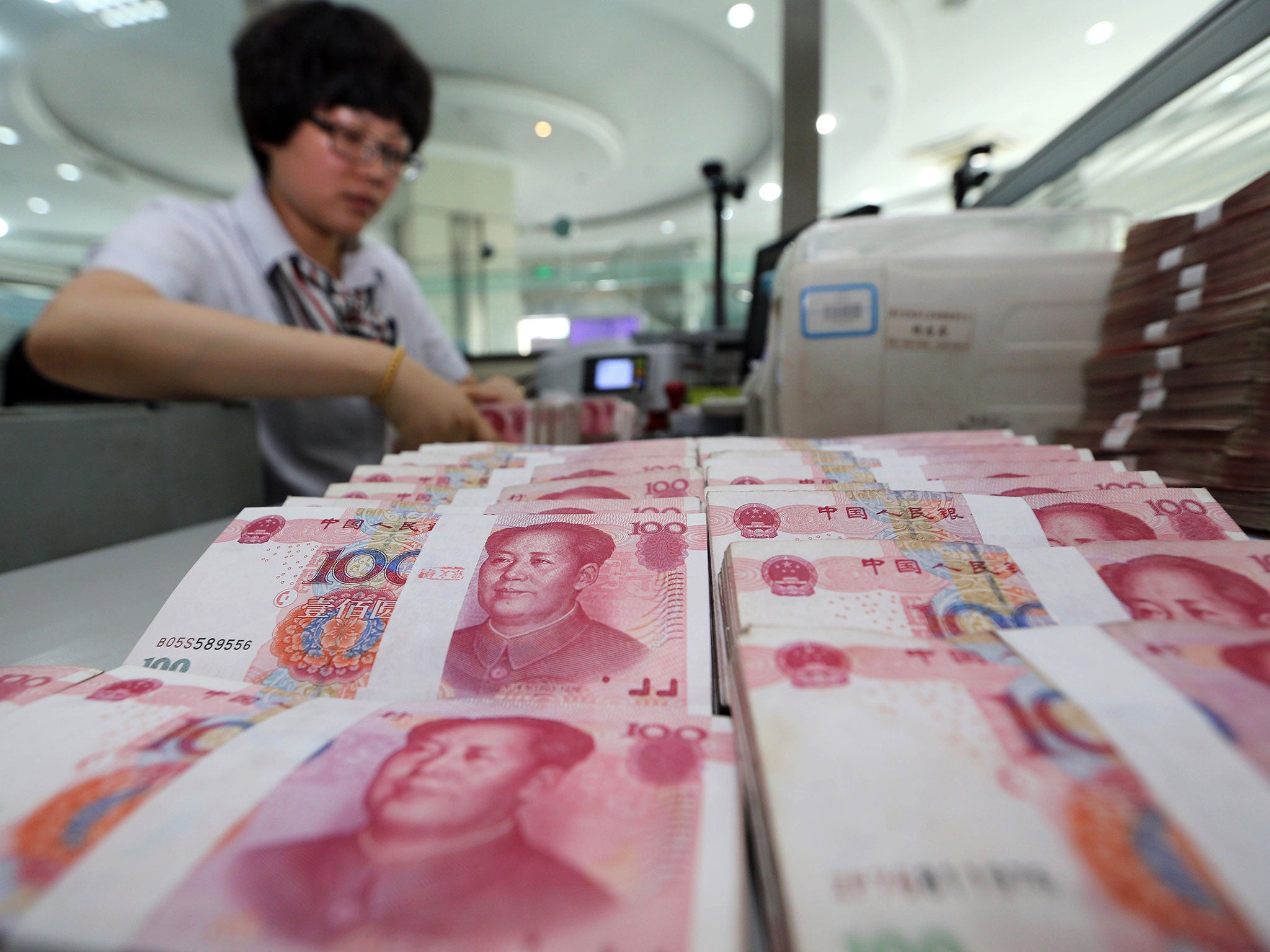Chinese banking crisis risk ‘reaches all-time high’
The measure of stress in the financial system of the world’s second largest economy is now more than three times ‘safe’ levels.

Your support helps us to tell the story
From reproductive rights to climate change to Big Tech, The Independent is on the ground when the story is developing. Whether it's investigating the financials of Elon Musk's pro-Trump PAC or producing our latest documentary, 'The A Word', which shines a light on the American women fighting for reproductive rights, we know how important it is to parse out the facts from the messaging.
At such a critical moment in US history, we need reporters on the ground. Your donation allows us to keep sending journalists to speak to both sides of the story.
The Independent is trusted by Americans across the entire political spectrum. And unlike many other quality news outlets, we choose not to lock Americans out of our reporting and analysis with paywalls. We believe quality journalism should be available to everyone, paid for by those who can afford it.
Your support makes all the difference.The risk of a catastrophic Chinese banking crisis is mounting according to a warning indicator from a global banking watchdog.
The measure of stress in the banking system has hit a new record, reveals the Bank for International Settlements (BIS), meaning it thinks the likelihood of Chinese banks collapsing is higher than ever.
The news underlines the risks to the nation and the world from a rapid build-up of Chinese companies’ debt.
The BIS measures stress by comparing the total amount of outstanding loans to the total size of the economy – the credit-to-GDP ratio. This is then compared to the long-term trend in this ratio to work out the “gap”. The bigger the gap the greater the potential for bank failures.
The gap between stood at 30.1 per cent, the highest for the nation in data stretching back to 1995. Readings of 10 per cent signal potential danger, according to the BIS.
Some analysts argue that China will need to bail out its banks in coming years because of bad loans that may be higher than the official numbers.
However, others argue that the nature of the Chinese state and financial system could allow problems to be contained within the country rather than spreading internationally, as happened in the global banking crisis of 2008-9.
The Chinese state controls much of the financial system and its banks have limited levels of overseas debt – factors which may allow the country to stem problems more easily than Western governments could.
In a financial stability report published in June, China’s central bank said lenders would be able to maintain relatively high capital levels even if hit by severe shocks.
While the BIS says that credit-to-GDP gaps exceeded 10 per cent in the three years preceding the majority of financial crises, China has remained above that threshold for most of the period since mid-2009, with no crisis so far.
In the first quarter, China’s gap exceeded the levels of 41 other nations and the euro area. In the US, readings exceeded 10 per cent in the lead-up to the global financial crisis.
Any concerns about the outlook for China’s banks failed to damp their stocks on Monday: industry giant Industrial & Commercial Bank of China Ltd. was up 1.9 per cent in Hong Kong trading.
Additional reporting by Bloomberg
Join our commenting forum
Join thought-provoking conversations, follow other Independent readers and see their replies
0Comments